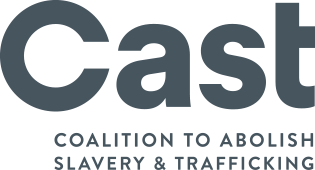SAN FRANCISCO — After receiving a call from the national Human Trafficking Hotline, police in Los Angeles converged on an apartment home in Los Angeles earlier this month, and rescued a 29-year-old Filipina national who claimed she was being held against her will to work for a Filipino family.
Lynne Bergado, 29, an OFW was taken from an apartment building she’s lived and worked from for the last two years. She has been relocated to safe shelter in Southern California.
Bergado had been living in the four-unit apartment building in Los Angeles that served as the residence and business site of Marlon and Nelle-Ann Velonza, who operated the Philippine-based business, Etta’s USA, which sold skin whitening and bleaching products.
Bergado claims she had been working 12 hours a day and paid less than $350 a month since her arrival in April 2014. She says she was subjected to forced confinement, verbal threats and other treatment of servitude and forced labor.Bergado initially came to America as the caretaker of Marlon Velonza’s mother, Felisa aka Etta. But when Felisa returned to the Philippines in 2015, Bergado stayed to work for the Velonzas doing house chores and sales fulfillment.
Lapsed visa
In the meantime, the visa of Bergado lapsed in 2015, which gave the Velonzas power over her.
“I am scared of my employer,” Bergado told me in an interview. “They hold all my stuff,” she said referring to her Philippine passport and her phone, which was often disabled from receiving or making calls, or simply taken away from her.
“They said don’t talk to other people, do not show your face,” Bergado told me. “I’m like in jail. I stay alone in the house… I feel like I’m in a prison… I’m always crying.”
In addition, Bergado was told to lie about her name and deny she was staying there. She was anxious and felt her every move was watched.
The Velonzas have not been charged, but the case remains under investigation.
When reached for comment, Nelle-Ann Velonza denied Bergado’s claim of being held against her will.
“She’s a born liar,” Velonza told me emphatically. She said Bergado was treated like a family member. “She called me Ate,” she said.
Velonza confirmed that the Los Angeles Police came to the house and took Bergado away. She also said she told police that they would return Bergado’s passport and any money owed her.
Bergado was paid under her original agreement 17,000 pesos, and not dollars, equal to about $350 dollars a month. Part of her pay, an estimated 10,000 pesos was given to Bergado’s family in the Philippines each month, with the rest held back but allegedly never paid to Bergado.
Paid in pesos
The amount of back pay may be much more significant if there is a finding that Bergado, who was paid in pesos in the U.S., was underpaid.
Bergado told me she worked seven days a week, at least 12 hours a day. She originally worked at the Etta’s cosmetic factory in San Pedro, Laguna, Philippines. But when Etta hired her to be a caretaker, she saw coming to America as an opportunity to send money back to the Philippines to help her own mother and two young daughters.
When I asked Velonza about that, she said there was no written work agreement, and characterized Bergado another way.
“She’s like a distant relative,” Velonza told me. “She’s helping. She wasn’t being abused. I buy everything for her.”
Velonza said she even provided dental care for Bergado and tried to help her pay for it by letting Bergado work off the dental bill.
Coincidentally, Velonza said she and her husband were in the process of buying a ticket for Bergado to return to the Philippines. But then the police were called.
“She must not want to go home,” Velonza said. “She was free to leave.”
But the activists who helped Bergado say she was only free once she was placed in a safe haven.
T-Visa application
Sources in the anti-trafficking hotline tell me that she has since applied for a T-Visa, which allows for victims of human trafficking to stay in the U.S. for a period before repatriating or applying for permanent residency.
Bergado, who has relied on the help of anti-human trafficking activists throughout the world, came to the attention of a whistleblower, who called the national Human Trafficking Hotline.
Once called in, cases like Bergado’s are often referred to local agencies like the Coalition to Abolish Slavery and Trafficking, or CAST.
Angelina Bradley, managing Attorney for CAST-LA, would not confirm nor deny whether Bergado is her client.
Bradley said she has 300 open cases, most involving minors and sex trafficking, and called her case load “just the tip of the iceberg.”
She said labor trafficking cases are often harder to prosecute, yet continue to happen “under our noses.”
As a Filipina American, Bradley, said hearing of a case like Bergado’s hurts her.
“I trust another Filipino to take care of me,” Bradley told me. “To see there can be exploitation in the community is a special kind of heartache.”
Emil Guillermo is a journalist and commentator who writes from Northern California.
Contact him: http://www.twitter.com/emilamok

